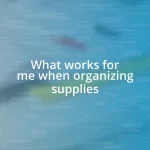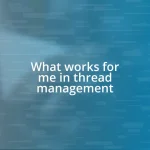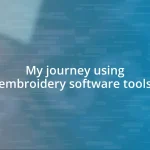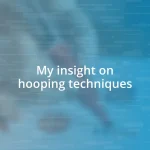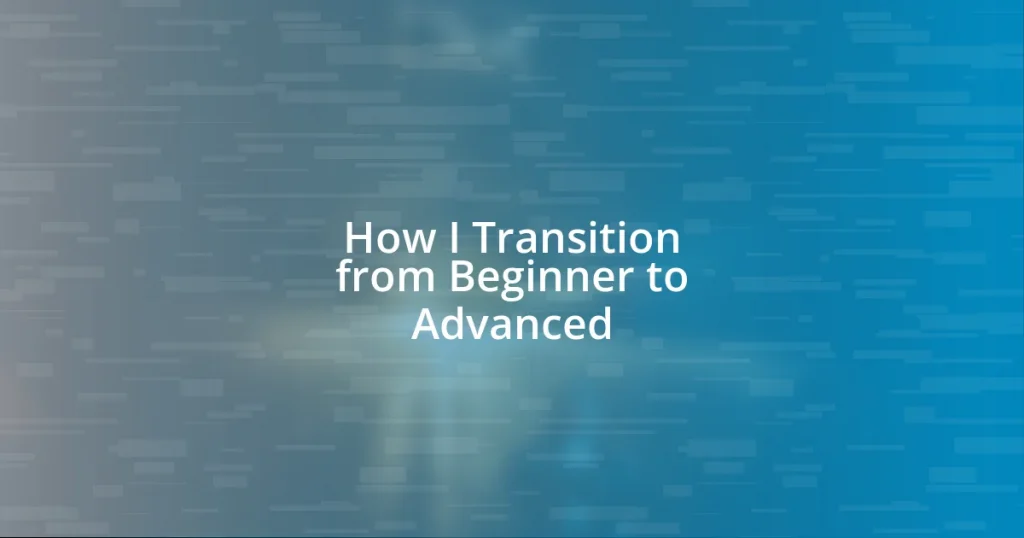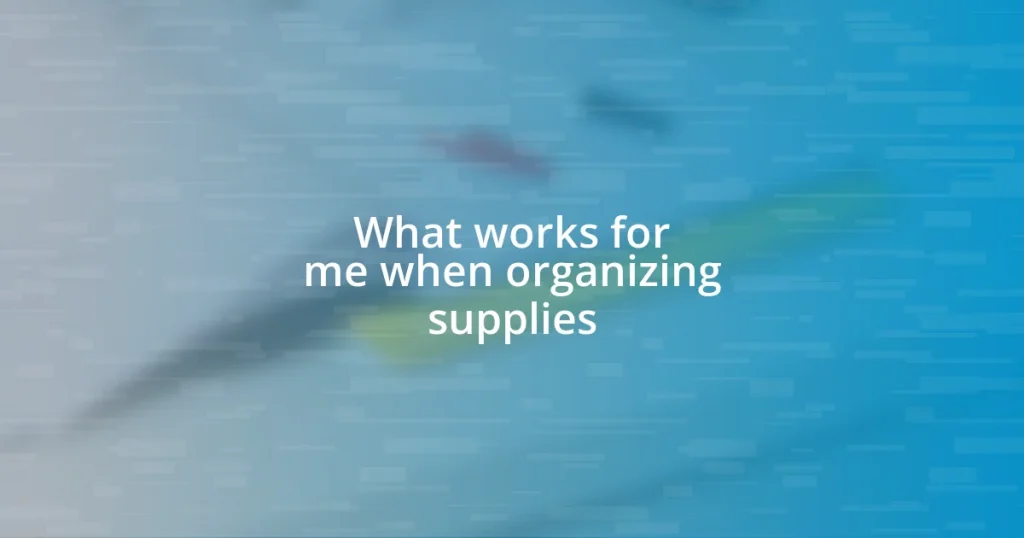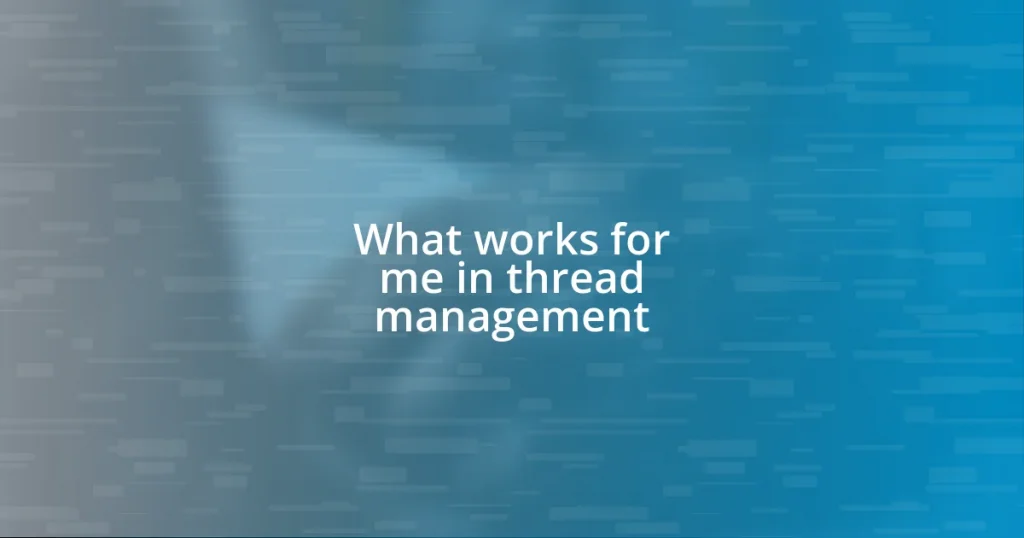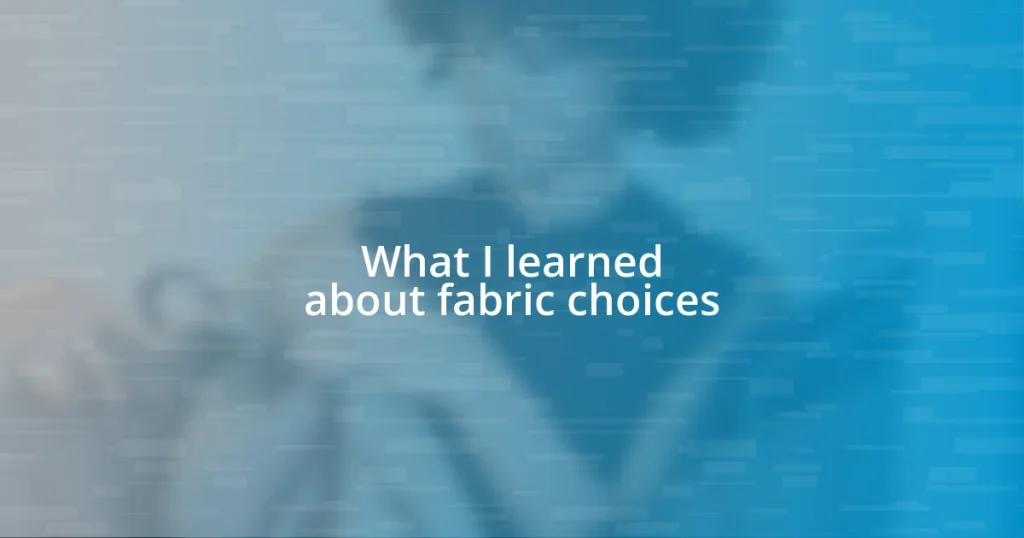Key takeaways:
- Embrace the beginner mindset by accepting mistakes and viewing challenges as opportunities for growth.
- Set specific and measurable goals, breaking them into manageable milestones to maintain motivation and track progress.
- Engage with communities for support, feedback, and accountability, enhancing your learning experience through collaboration and shared achievements.
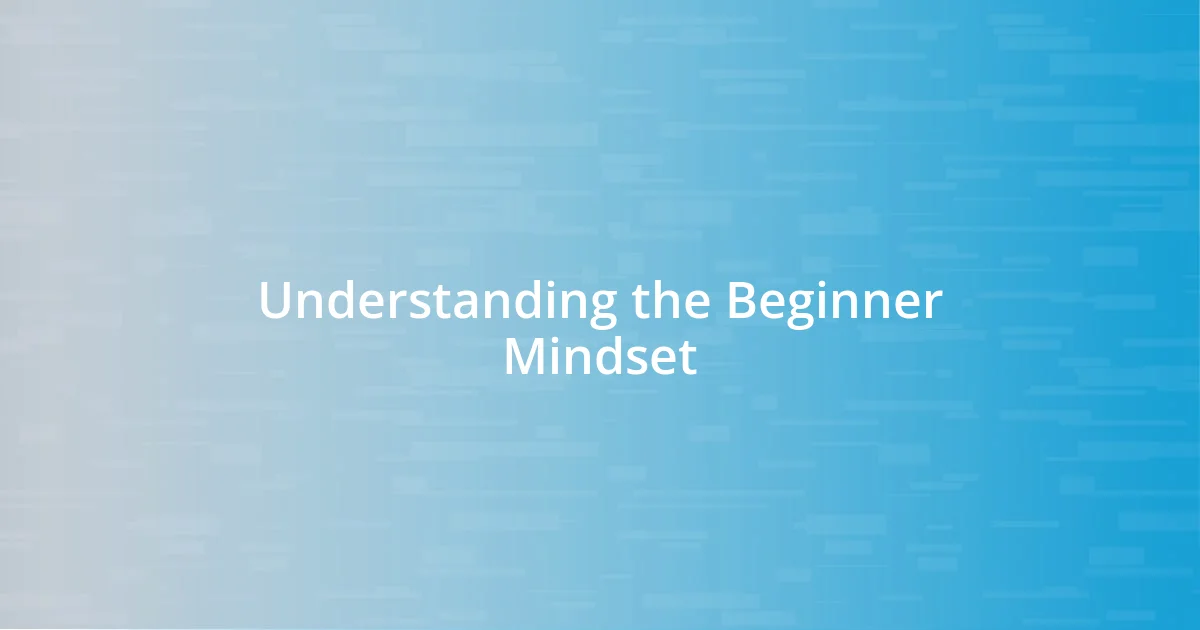
Understanding the Beginner Mindset
When I first started learning a new skill, I felt overwhelmed by the sheer amount of information. It was as if I was standing at the base of a mountain, looking up at the peak. I often wondered, “How will I ever reach that level?” That feeling of being a beginner can be daunting, but it’s also an essential part of the journey.
The beginner mindset is characterized by curiosity and a willingness to learn. I remember spending countless hours fumbling through tutorials, sometimes feeling frustrated but also fascinated by each new concept. Have you ever found yourself engrossed in something you didn’t understand, pushing through the struggle just to unlock that “aha” moment? Those moments define our growth, revealing that being a beginner is more about embracing the process than achieving perfection.
Embracing a beginner’s mindset means accepting mistakes as a part of the learning experience. I vividly recall a time when I made a major blunder in a project and felt utterly defeated. Instead of giving up, I chose to reflect on what went wrong, and that experience became a pivotal moment in my journey. It taught me that every misstep is a stepping stone toward mastery, nurturing resilience and deepening my understanding.
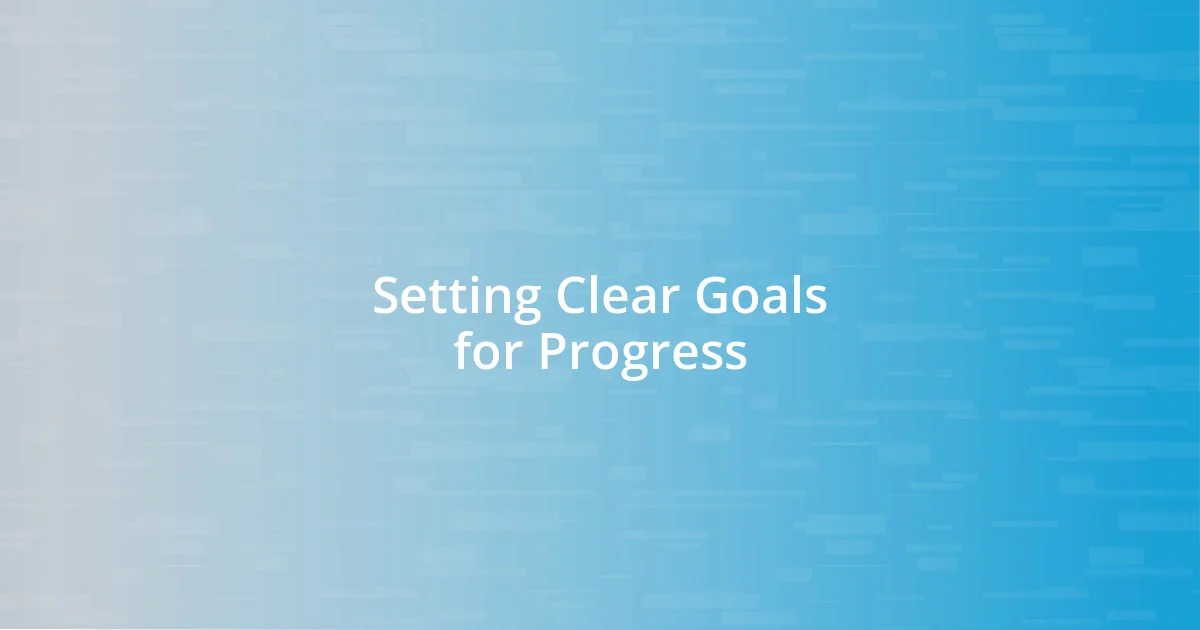
Setting Clear Goals for Progress
Setting clear goals is a game-changer in transforming from a beginner to an advanced learner. I vividly recall the time I set my first goal of mastering a particular skill within three months. It felt daunting at first, but as I broke it down into smaller, manageable milestones, I could celebrate each little victory along the way. This approach not only kept my motivation high but also offered clarity to my learning path.
Here are some tips for setting effective goals:
- Be specific: Define what success looks like for each goal. Instead of saying, “I want to improve,” specify how you’ll measure improvement.
- Make it measurable: Include criteria to track your progress, such as “complete five projects” or “practice for 30 minutes daily.”
- Set achievable targets: Ensure your goals are realistic based on your current skill level. Overambitious goals can lead to frustration.
- Reassess regularly: Periodically evaluate your goals to ensure they align with your growth and interests. Don’t hesitate to adjust them.
- Celebrate milestones: Acknowledge and reward yourself when you hit a target. This positivity reinforces your commitment to learning.
By applying these strategies, I found that my overall progress didn’t just happen overnight—it was a series of intentional steps that cultivated my learning journey. Each time I checked off a milestone, I felt a surge of confidence, fueling my desire to reach for even more challenging objectives.
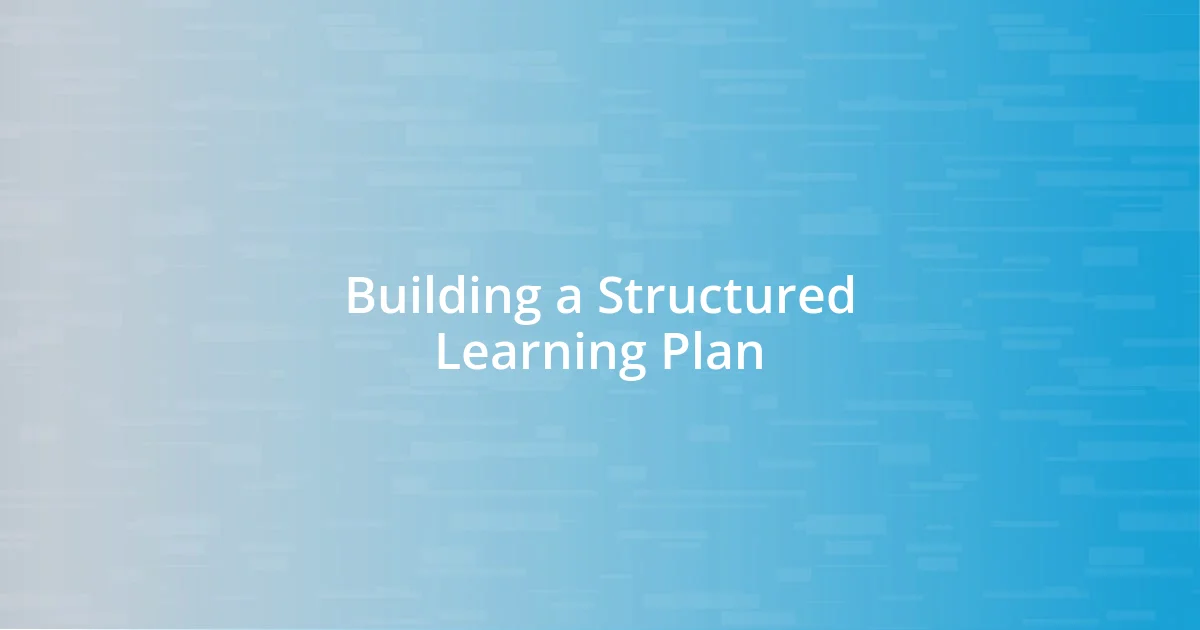
Building a Structured Learning Plan
Building a structured learning plan can significantly enhance your ability to transition from a beginner to an advanced learner. I can clearly remember when I first mapped out my own learning plan; it was enlightening. I used to dive into random tutorials, often feeling lost. However, when I began to structure my learning, everything changed. I outlined my goals weekly, stating what concepts I wanted to tackle and how I would practice them. This clarity made me feel like I was finally steering my own ship rather than just floating along with the tide.
One approach that worked wonders for me was integrating various learning resources. I would combine online courses, books, and hands-on projects into my plan. For instance, one week, I focused on a specific theory through a course, and the following week, I applied that theory in a personal project. This not only reinforced my understanding but also kept the process exciting. It’s like cooking a new recipe—you need the right ingredients and a step-by-step guide to get it just right.
In the process of building this structured plan, I also learned to be flexible. There were days when I would hit a wall and realize that my schedule needed adjustment. I remember a week where I felt completely overwhelmed. Instead of adhering rigidly to my initial plan, I took a step back, re-evaluated my targets, and shifted my focus. This adaptability not only reduced my stress but also led to deeper insights.
| Key Components of a Structured Learning Plan | Description |
|---|---|
| Goal Setting | Establish specific, measurable, achievable, relevant, and time-bound (SMART) goals. |
| Resource Integration | Utilize a mix of learning materials like books, online courses, and practical projects. |
| Flexibility | Be open to adjusting your plan based on progress and understanding. |
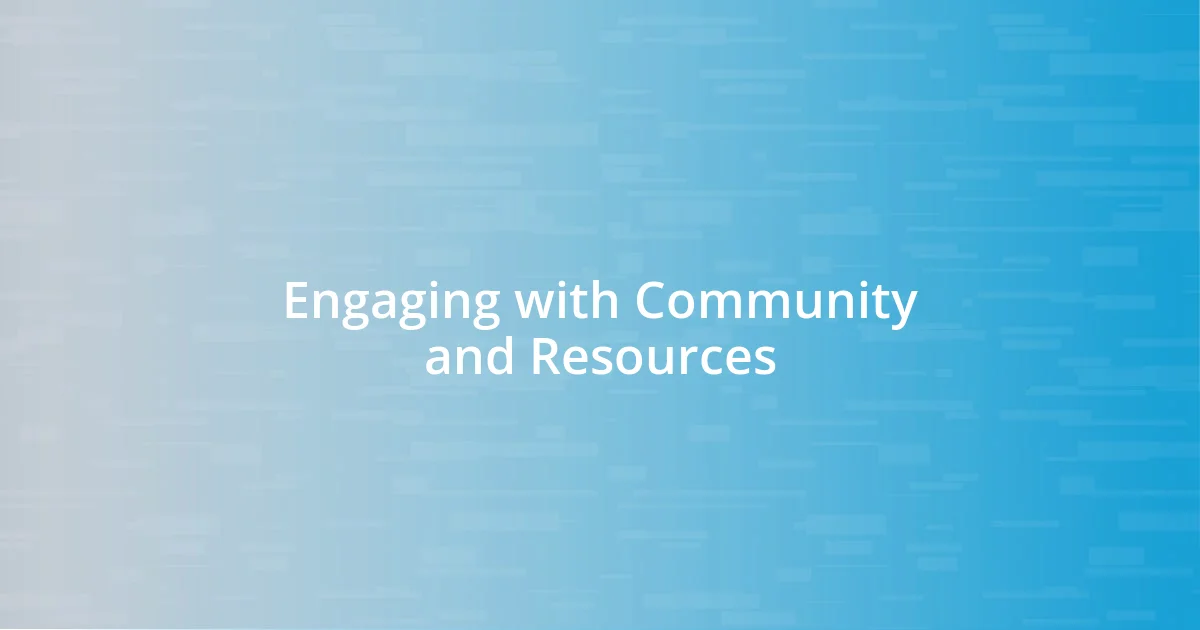
Engaging with Community and Resources
Engaging with a community can be a transformative aspect of your learning journey. I remember the first time I attended a local workshop. It was intimidating at first, standing in a room full of more experienced individuals. But, connecting with others who shared my passion provided a sense of belonging and motivation. Through discussions, I gained unique perspectives and practical tips that I wouldn’t have come across alone. Have you ever felt that spark when someone offers advice from their own experience? It’s like finding a hidden treasure.
Taking advantage of online resources and forums is another way I’ve deepened my knowledge. I often turn to platforms where experts gather, such as Reddit or specialized Discord groups. There was a phase when I posted my struggles on a forum, hoping for guidance. The responses I received not only helped me overcome my obstacle but also sparked new ideas I hadn’t considered. Engaging with these communities can open doors to resources that are specifically tailored to your needs, making your path smoother and more enjoyable.
Lastly, don’t underestimate the power of accountability within a community. I joined a weekly study group where we shared our goals and progress. This setting helped me stay committed, knowing my peers were cheering me on. It’s more than just motivation—it fosters a sense of collective growth. Isn’t it refreshing to realize that you’re not alone in this journey? The friendships and bonds formed through shared challenges can be some of the most rewarding aspects of advancing your skills.
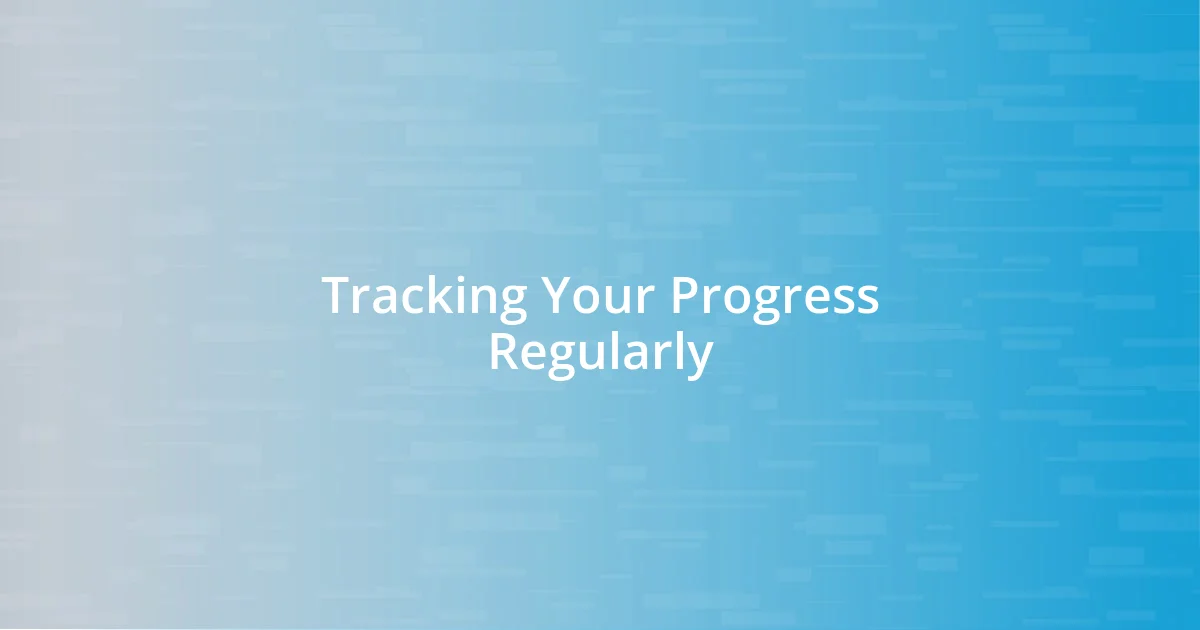
Tracking Your Progress Regularly
Tracking your progress is an essential part of transforming your learning experience. I remember the first time I began to jot down my daily achievements; it felt satisfying to visualize my growth. I’ve adopted a simple habit of keeping a journal, where I log what I’ve learned and the skills I’ve practiced each day. This practice not only allows me to see improvement over time but also helps me identify areas that require more attention. Have you ever experienced that moment of realization when you notice how far you’ve come? It can be both empowering and motivating.
One effective method I’ve used is setting regular check-ins with myself. I established a weekly routine where I review my progress, map out what went well, and note down challenges I faced. During these reflections, I often find patterns in my learning—like recognizing that I tend to struggle with certain concepts but excel in others. This clarity helps me adjust my plan and focus on what’s truly important. It’s like having a personal coach who guides you toward your objectives, allowing you to refine your approach continuously.
Furthermore, sharing my progress with others has been incredibly rewarding. I recall a time when I posted my weekly milestones in a local study group, and it opened up a meaningful dialogue. Others shared their insights, and I received feedback that prompted new ways of thinking about my goals. It’s intriguing how this accountability not only enhances my commitment but also fosters a sense of community. Have you ever felt more driven when others are invested in your journey? The support and encouragement you gain from tracking and sharing progress can truly elevate your learning experience.
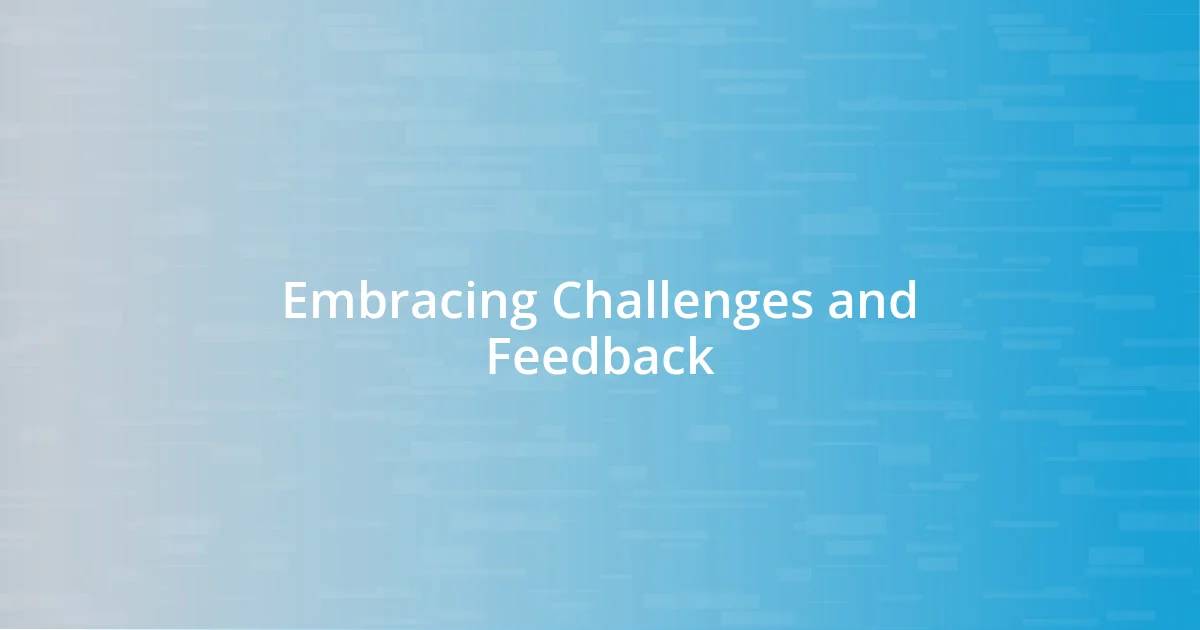
Embracing Challenges and Feedback
Embracing challenges is something I’ve come to view as an essential part of growth. There was a time when I faced a particularly tough project that made me doubt my abilities. Instead of shying away, I decided to tackle it head-on. The sense of accomplishment I felt after overcoming that hurdle was indescribable, and it ignited a fire within me to take on even bigger challenges. Have you ever pushed through something that felt impossible, only to realize you were stronger than you thought?
Feedback can feel daunting at first, especially when you’re not yet confident in your skills. But I’ve learned that constructive criticism is like a compass guiding me toward improvement. I remember receiving feedback on a presentation I delivered—initially, I felt a wave of vulnerability. However, after embracing the suggestions, I noticed how my next presentation resonated better with the audience. That moment made me realize feedback is not about criticism; it’s a valuable tool for refinement. Can you recall a time feedback transformed your approach?
Lastly, I find that actively seeking out challenges and feedback can create a growth loop that propels me forward. For instance, I volunteered to lead a project, knowing it would stretch my abilities. The initial fear was palpable, but every time I asked for input from my team members, I gained insights that expanded my perspective. This ongoing cycle of challenge and feedback established a growth mindset that has stuck with me. Has stepping out of your comfort zone ever led to unexpected opportunities? Embracing these aspects has been pivotal in my journey toward mastery.
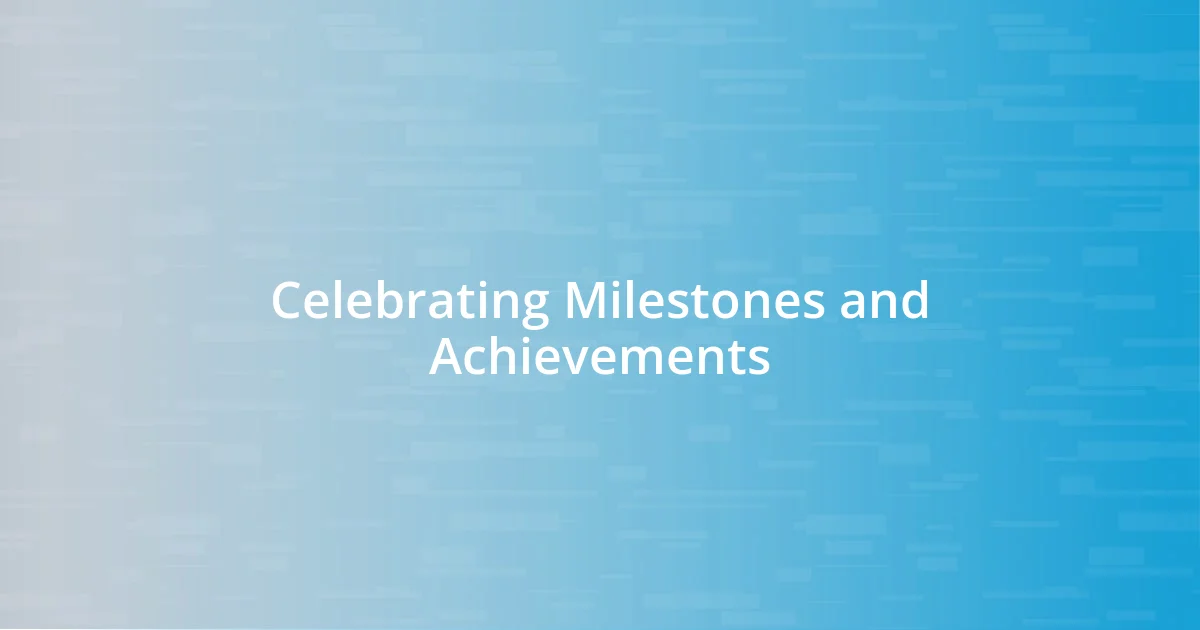
Celebrating Milestones and Achievements
Celebrating milestones is not just a formality; it’s a powerful way to acknowledge the hard work and dedication that fuels our growth. I vividly remember reaching my first major goal—completing a challenging course that took countless late nights and endless coffee. The pride I felt was overwhelming as I took a moment to celebrate with friends. Have you taken the time to recognize your accomplishments, no matter how small? It’s incredible how such moments can recharge your motivation.
As I progressed, I found that creating tangible reminders of my achievements added an exciting, visual element to my journey. I started collecting little tokens from events or courses I completed, like certificates or even photos from workshops. One day, looking through these keepsakes, I was flooded with a sense of gratitude and pride, realizing how each piece represented a step forward. Have you ever crafted something similar? These visual cues can serve as constant encouragement, reminding us of our capabilities during tougher times.
Involving others in my celebration efforts has also deepened my experience. I began hosting small gatherings to share my achievements with friends and family, inviting them to celebrate alongside me. I remember the warmth of laughter and supportive cheers when I hit a significant milestone. Hearing others express their pride in my efforts created bonds that encouraged me to strive even further. Have you shared your success with those around you? The joy of collective celebration can elevate our journeys to new heights, reminding us that it’s not just about personal achievements; it’s also about creating a supportive community around us.

